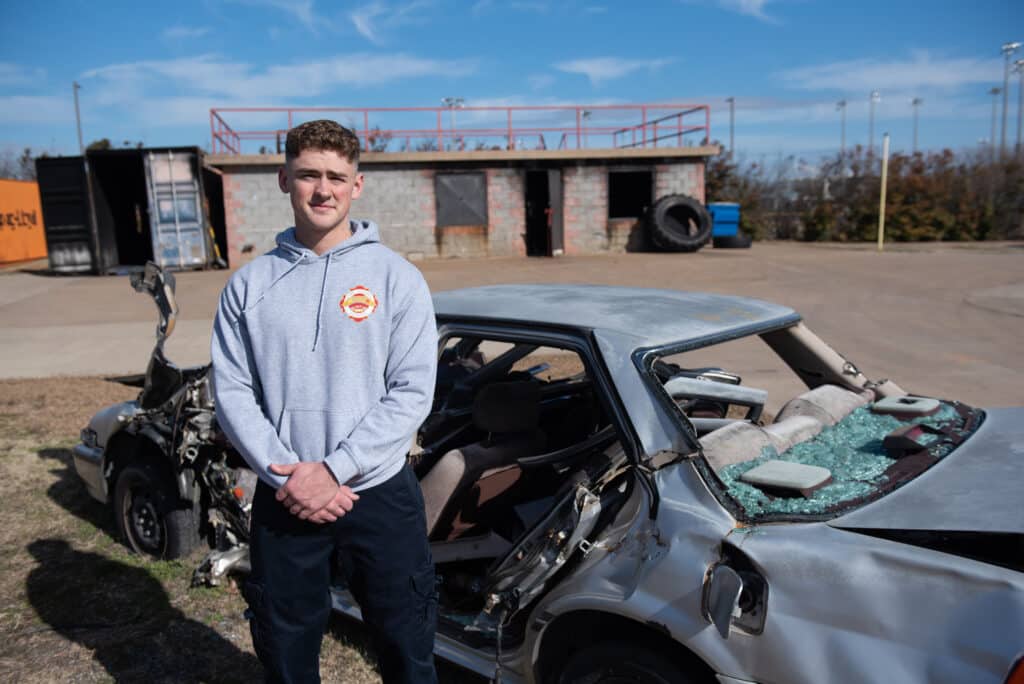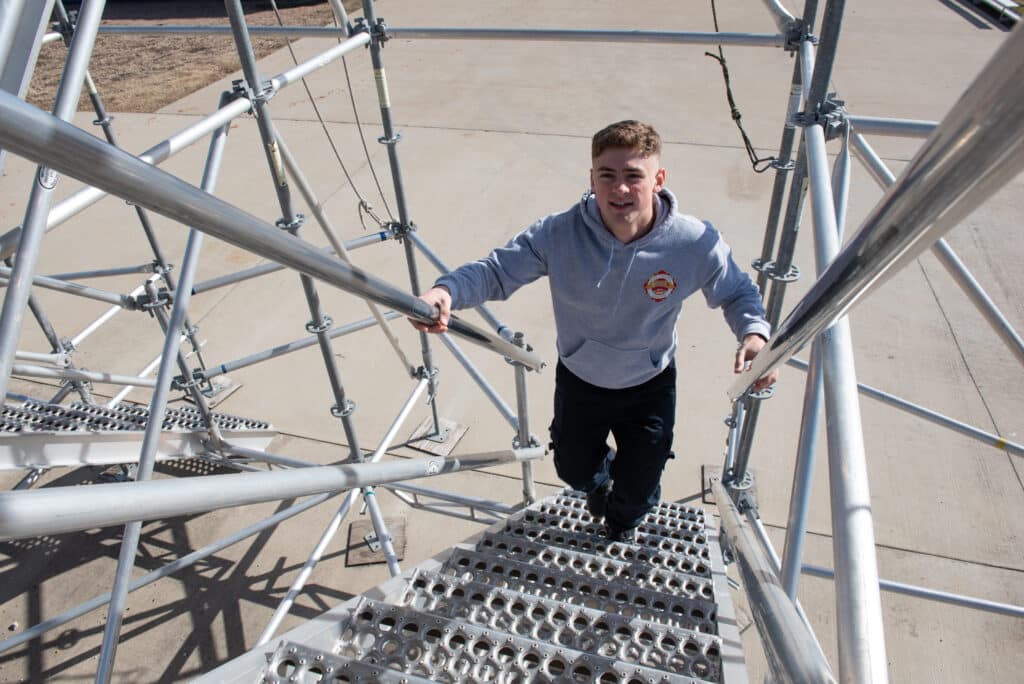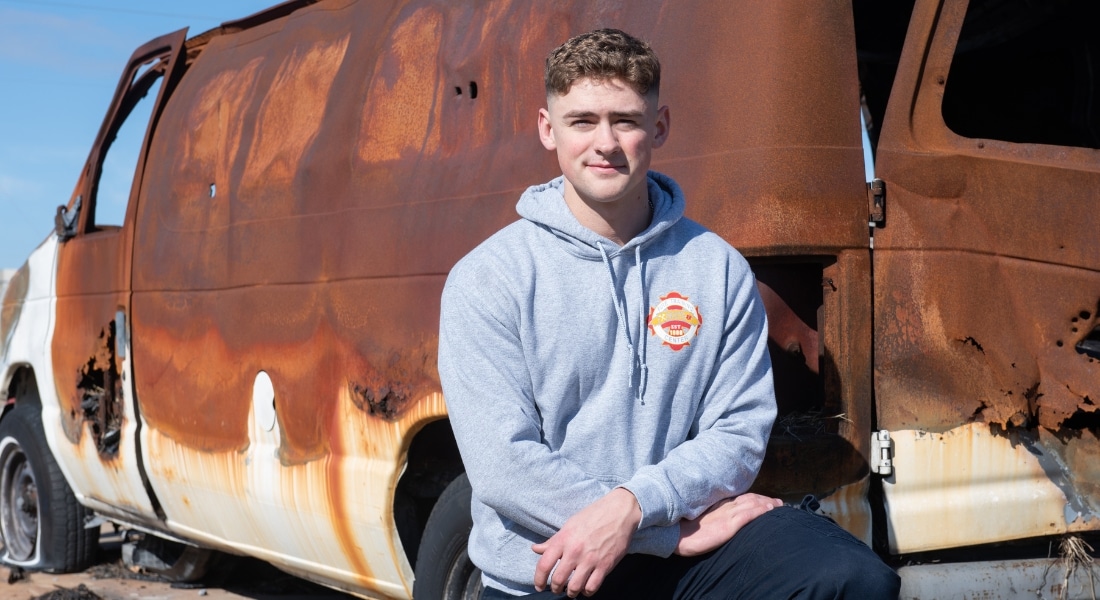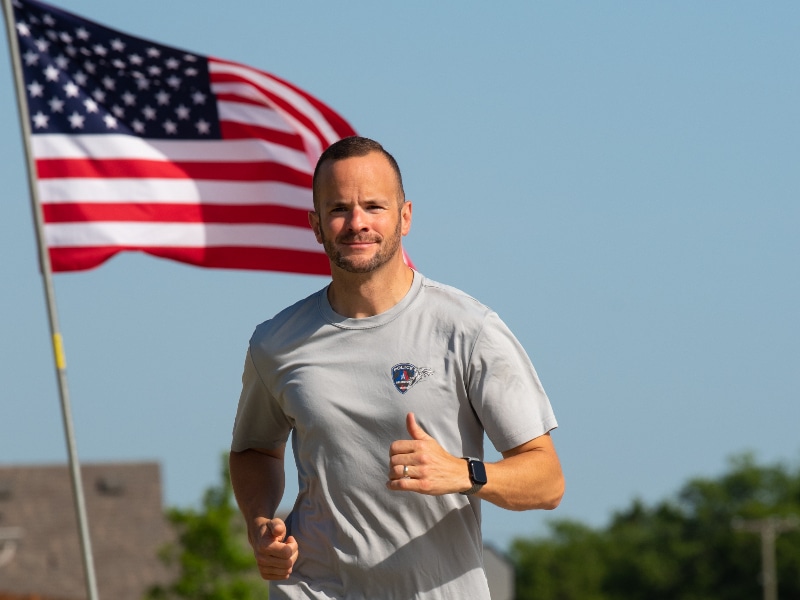Aspiring firefighter Noah Smith has dreamed of being a first responder for years, and not even appendicitis could extinguish a will to serve that’s in his blood.
“I have a calling to be a first responder,” says Noah, whose father has served as Midlothian’s police chief since 2007. “I’ve always had a servant’s heart.”
Just weeks after having his appendix removed at Methodist Midlothian Medical Center, Noah beat the odds to finish his training regimen at the Joe Brown DeSoto Fire Academy.
“The instructors told me that several fire academy students had to deal with appendicitis over the years,” the 22-year-old says. “But none had ever come back to finish the training after surgery.”
Noah credits the team at Methodist Midlothian for helping him recover so quickly.
‘NO EXCUSES’ MINDSET
Like most appendicitis patients, Noah mistook his initial symptoms for indigestion and gutted out two days of rigorous training before seeking medical help.
“No excuses, that was kind of my mindset,” he says.
The pain got the best of him when his class got ready to perform a “fire-team push-up.”
“It’s a group effort: One guy puts his legs on the back of the next guy, who puts his legs on the back of the next guy and so on,” Noah says. “And when I lay down, I knew something was wrong.”
Trained as an emergency medical technician, Noah had a hunch about what was wrong and consulted his EMT training manual for the most common symptoms of an inflamed appendix: nausea, a loss of appetite, and abdominal pain that starts near the belly button and radiates to the lower right side.
“By the next morning, I was throwing up and hadn’t had much of an appetite for 48 hours,” he says. “That‘s when my mom made an appointment with the family doctor.”

Training at the academy includes putting out vehicle fires (top photo) and rescues using the ”Jaws of Life.”
MINIMALLY INVASIVE
From there, Noah was sent straight to Methodist Midlothian, where he would meet Ivan Cruz, MD, general surgeon on the hospital’s medical staff.
“He came to the ER with classic symptoms of appendicitis,” Dr. Cruz says. “He was two days into his illness, but thankfully the appendix had not perforated or burst.”
An appendectomy is a minimally invasive surgery performed laparoscopically and sometimes robotically through three small “keyhole” incisions. After the abdomen is pumped full of carbon dioxide gas, giving the surgeon room to maneuver, the inflamed organ is separated from the large intestine and removed.
“Patients bounce back very quickly,” Dr. Cruz says. “Noah was in the middle of his training, wearing heavy gear and crawling through obstacle courses — the stuff you should avoid doing for three or four weeks after surgery.”
That’s because there’s a risk of hernia after any surgery when putting too much stress on the abdominal muscles.
“For the first four weeks after surgery, I wasn’t engaging in any of the heavy lifting or physical activity just because I really couldn’t,” Noah says. “Even now, after about four months, I can still feel it.”
But he was determined to graduate with the rest of his training class in October.
Trust your gut to advanced GI care at Methodist by finding a digestive health specialist near you. Visit MethodistHealthSystem.org
‘MIRACULOUS ENERGY’
Exactly a month after surgery, Noah rejoined his fellow trainees at the fire academy — but that first day got off to a rough start.
“About a quarter of the way through PT, I realized I was about to pass out,” he says. “I was really frustrated because I thought I was ready for this.”
The next day, however, was a different story, even though he was outfitted in his full “bunker gear,” which can weigh from 25 pounds to twice that with a breathing apparatus.
“That was my first time being in full gear,” he says. “I got through it thanks to some miraculous energy that came from I don’t know where.”
Dr. Cruz isn’t surprised that Noah managed to complete his training.
“You can tell he’s going to be good at his job,” he says. “He’s a young, tough guy, but also very nice and responsible. Serving people seems to run in the family.”

Noah scales the fire training tower after graduating from the DeSoto Fire Academy.
READY TO SERVE
Noah was impressed by the service he received from Dr. Cruz and the rest of the team at Methodist Midlothian. It was his first surgery, so he admits to being out of sorts at first.
“I woke up and couldn’t feel my legs because they had these cuffs on me,” says Noah, describing the compression cuffs used to prevent blood clots after surgery. “I was ready to start throwing hands, but a nurse calmed me down pretty fast.”
As an EMT and aspiring firefighter, Noah wasn’t used to being on the other side, accepting help rather than delivering it. But he’s grateful to have ended up at Methodist Midlothian so he could keep his dream on track.
“It’s a testament to the care I got,” he says. “I was very blessed by my built-in support — my buddies, my family, and my girlfriend and her family — as well as the support of the academy itself. I thank God for that.”






